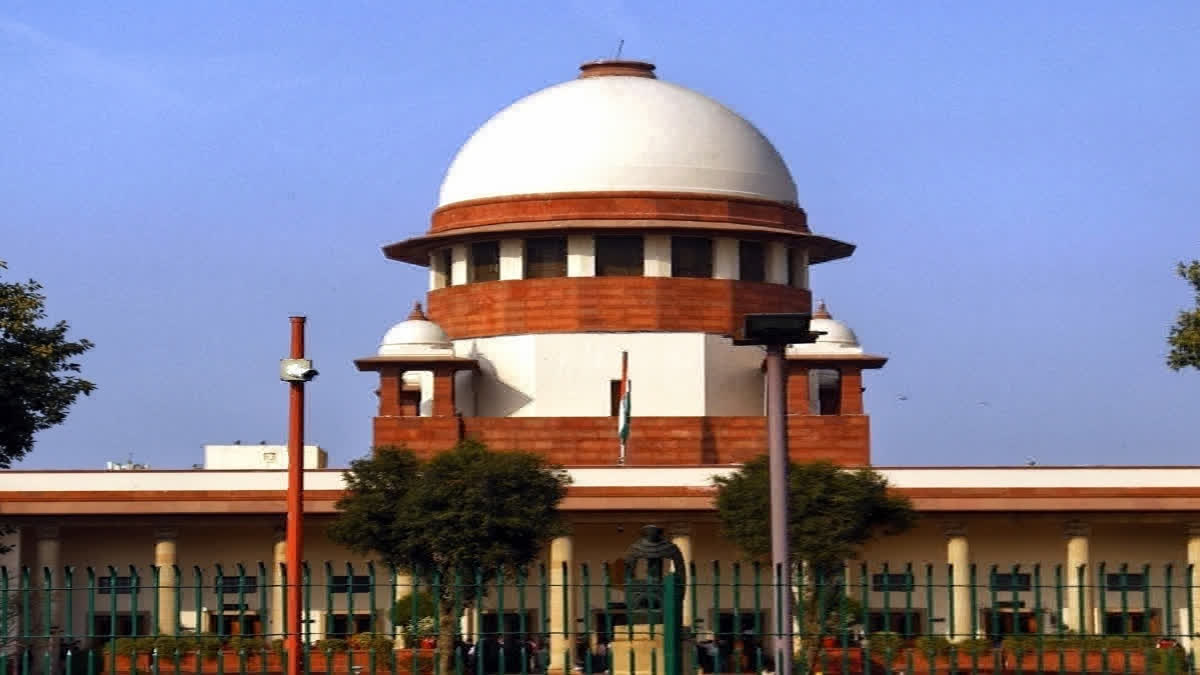New Delhi: The Supreme Court on Wednesday set aside a settlement reached between BYJU's and the Board of Control for Cricket in India (BCCI), which has effectively revived the insolvency proceedings against the embattled ed-tech company.
A three-judge bench led by Chief Justice of India D Y Chandrachud and comprising Justices J B Pardiwala and Manoj Misra said: "We allow the present appeal and set aside the impugned judgment of the National Company Law Appellate Tribunal (NCLAT) dated 2 August 2024..... At this stage, it would not be appropriate for this court to adjudicate on the objections of the appellant to the settlement agreement on merits."
"The issues raised are the subject matter of several litigations in different fora, including the Delaware Court and investigation by various authorities, including the Enforcement Directorate, which are pending," the bench said.
The bench said that all parties and creditors could approach the Committee of Creditors (CoC) to pursue remedies available to them under the Insolvency and Bankruptcy Code (IBC).
The apex court said that the ₹158 crore the BYJU'S paid to BCCI as part of the earlier settlement be transferred to an escrow account under CoC's control.
"The amount of Rs 158 crore, along with accrued interest, if any, which has been maintained in a separate escrow account pursuant to the order of this court dated 14 August 2024, is to be deposited with the CoC. The CoC is directed to maintain this amount in an escrow account until further developments and to abide by the further directions of the NCLT," said the CJI, who authored the judgment.
The apex court said that the NCLAT could not have used its inherent power to allow the settlement, contrary to carefully crafted legal procedure for withdrawal of insolvency proceedings.
"Even if the procedural infirmity is kept aside, once the CIRP (Corporate Insolvency Resolution Process) was admitted, the proceedings became collective, and all creditors of the corporate debtor became stakeholders……even while invoking Rule 11 (NCLAT Rules, 2016) to allow withdrawal, the NCLT must hear all the concerned parties and consider all relevant factors on the facts of each case," said the bench, in its 61-page judgment.
The appellant who claims to be a financial creditor, has expressed reasonable apprehensions about the prejudice it would face if there were round-tripping of the funds, and the prioritisation of the debts of the second respondent, an operational creditor.
"The appellant raised detailed objections before the NCLAT to the source of the funds for the settlement and a reasonable apprehension that there was round-tripping of funds, in violation of the order passed by the Delaware Court on 18 March 2024. These objections were summarily dismissed by the NCLAT, relying solely on the undertaking filed by Riju Raveendran”, said the bench.
The CJI said the alleged facts such as the fraudulent transfer of USD 533 million to a hedge fund in the United States; the orders of the US Court restraining the brothers from transferring or dissipating the amount; the contempt proceedings against Riju Raveendran; the ongoing investigation by the Enforcement Directorate against the first respondent and the corporate debtor; and other attempts by the corporate debtor to dissipate assets, were not adequately addressed by the NCLAT.
